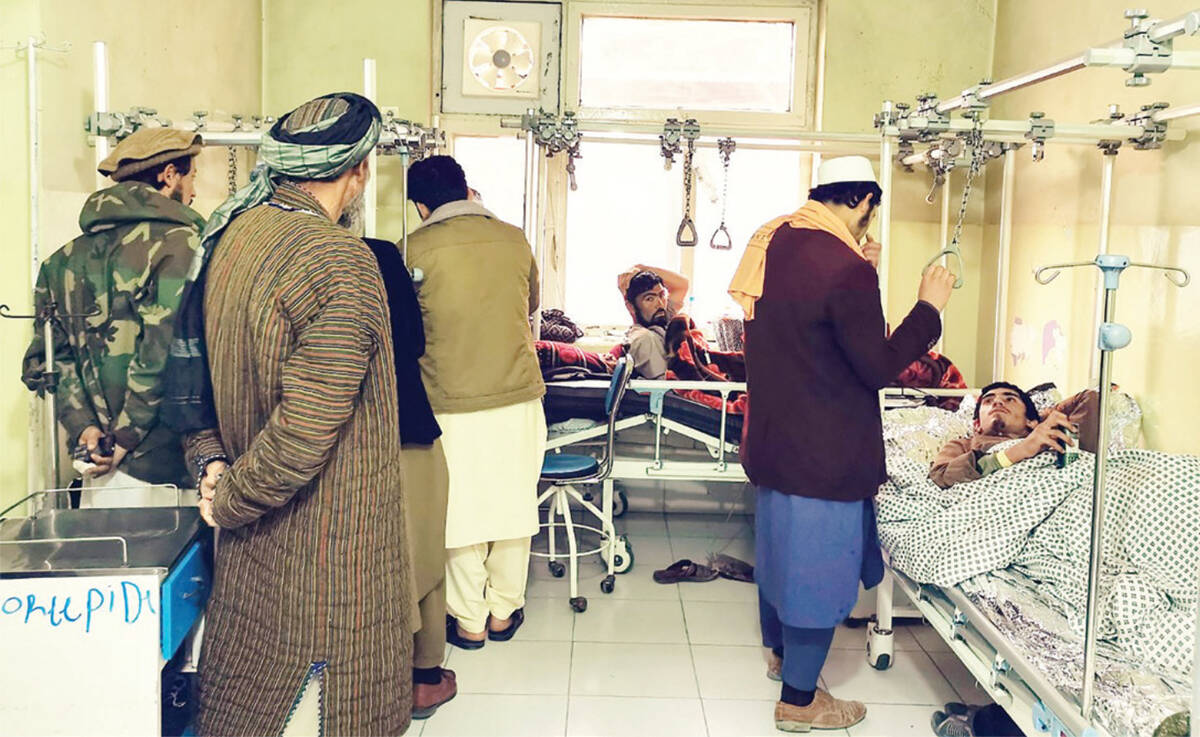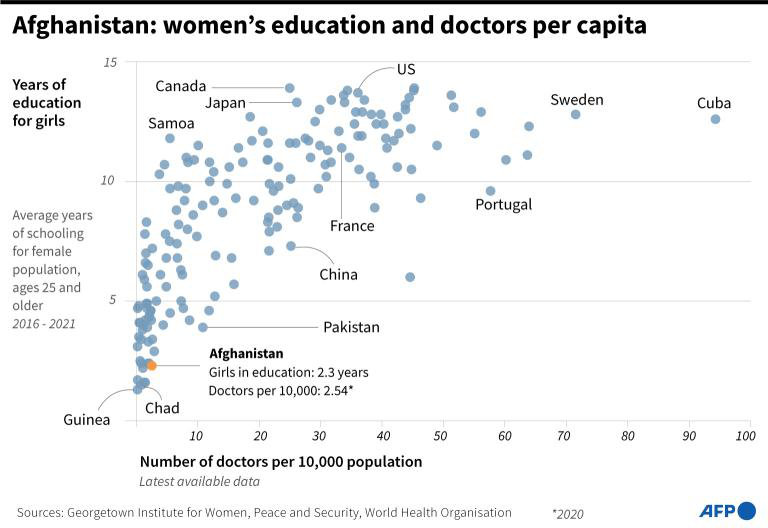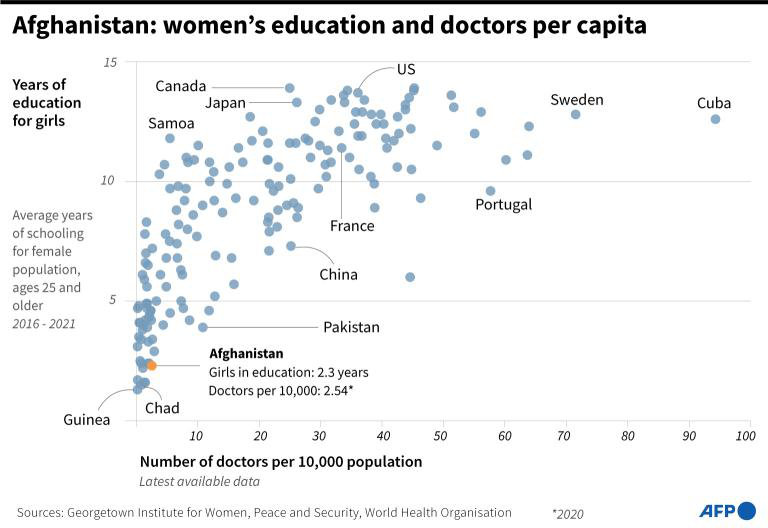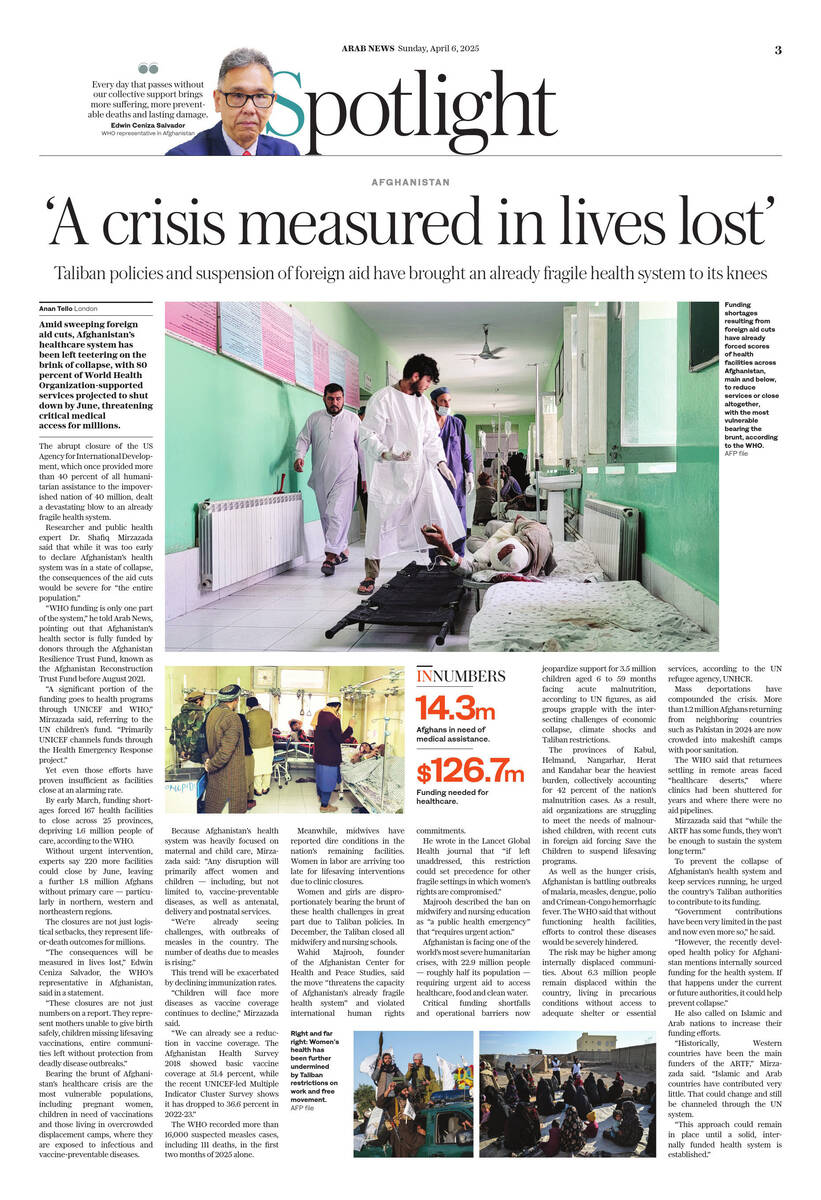WASHINGTON: People with ties to American universities, most of whom have shown support for pro-Palestinian causes, have been detained in the Trump administration’s crackdown on immigrants.
President Donald Trump and other officials have accused protesters and others of being “pro-Hamas,” referring to the Palestinian militant group that attacked Israel on Oct. 7, 2023. Many protesters have said they were speaking out against Israel’s actions in the war against Hamas in Gaza.
Trump’s administration has cited a seldom-invoked statute authorizing the secretary of state to revoke visas of noncitizens who could be considered a threat to foreign policy interests. More than half a dozen people are known to have been taken into custody or deported by US Immigration and Customs Enforcement officials in recent weeks.
Rumeysa Ozturk
Federal officers detained 30-year-old Turkish student Rumeysa Ozturk on Tuesday as she walked along a street in suburban Boston. A senior Department of Homeland Security spokesperson said without providing evidence that an investigation found Ozturk, a doctoral student at Tufts University, “engaged in activities in support of Hamas,” which is also a US-designated terrorist group.
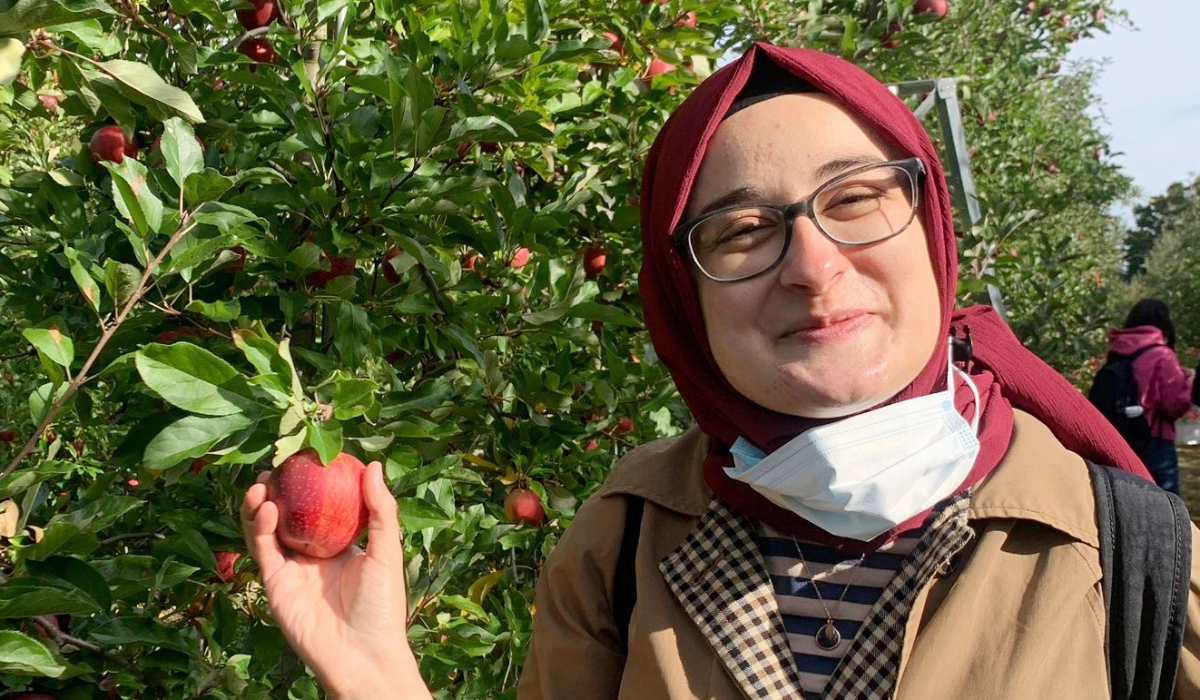
This contributed photo shows Rumeysa Ozturk on an apple-picking trip in 2021. (AP)
Friends and colleagues of Ozturk said her only known activism was co-authoring an op-ed in a student newspaper that called on Tufts University to engage with student demands to cut ties with Israel. Ozturk has been taken to an ICE detention center in Louisiana. A US District judge in Massachusetts on Friday said Ozturk can’t be deported to Turkiye without a court order and gave the government until Tuesday evening to respond to an updated complaint filed by Ozturk’s attorneys.
Mahmoud Khalil
This month, immigration enforcement agents arrested and detained Mahmoud Khalil, a legal US resident, Palestinian activist and graduate student who was prominent in protests at Columbia last year. The administration has said it revoked Khalil’s green card because his role in the campus protests amounted to antisemitic support for Hamas. He is fighting deportation.
Khalil served as a negotiator for Columbia students as they bargained with university officials over ending their campus encampment last spring. He was born in Syria and is married to an American citizen. His lawyers urged a federal judge on Friday to free their client from a Louisiana immigration detention center and argued his case should not be moved to Louisiana courts. The judge said he would issue a decision soon.
Yunseo Chung
Yunseo Chung is a Columbia student and lawful US resident who moved to America from Korea as a child. Chung attended and was arrested at a sit-in this month at nearby Barnard College protesting the expulsion of students who participated in pro-Palestinian activism.
The Department of Homeland Security wants to deport Chung and has said she “engaged in concerning conduct,” including being arrested on a misdemeanor charge. A judge ordered immigration agents not to detain Chung while her legal challenge is pending.
Badar Khan Suri
Badar Khan Suri, a Georgetown scholar from India, was arrested outside his Virginia home and detained by masked Homeland Security agents on allegations that he spread Hamas propaganda. Suri’s attorney wrote in a court filing that he was targeted because of his social media posts and his wife’s “identity as a Palestinian and her constitutionally protected speech.” Suri holds a visa authorizing him to be in the US as a visiting scholar, and his wife is a US citizen, according to court documents.
Suri was taken to a detention facility in Louisiana, according to a government website. His lawyers are seeking his immediate release and to halt deportation proceedings.
Leqaa Kordia
Leqaa Kordia, a resident of Newark, New Jersey, was detained and accused of failing to leave the US after her student visa expired. Federal authorities said Kordia is a Palestinian from the West Bank and that she was arrested at or near Columbia during pro-Palestinian protests. Columbia has said it has no record of her being a student there.
Kordia is being held in an immigration detention center in Alvarado, Texas, according to a government database.
Ranjani Srinivasan
Ranjani Srinivasan, an Indian citizen and doctoral student at Columbia, fled the US after immigration agents searched for her at her university residence. The Trump administration has said it revoked Srinivasan’s visa for “advocating for violence and terrorism.” Srinivasan opted to “self-deport.”
Officials didn’t say what evidence they have that Srinivasan advocated violence. Her lawyers deny the accusations, and she told The New York Times that she didn’t help to organize protests at Columbia.
Alireza Doroudi
University of Alabama doctoral student Alireza Doroudi of Iran was detained by ICE on Tuesday. David Rozas, a lawyer representing Doroudi, says Douridi was studying mechanical engineering. His student visa was revoked in 2023, but his lawyer has said he was eligible to continue his studies as long as he maintained his student status and met other requirements of his entry into the United States.
A Department of Homeland Security spokesperson said Friday that the arrest was made over the revocation of Doroudi’s student visa, saying he “posed significant national security concerns.” A spokesperson said they could not share additional details.
Unlike some other students targeted by ICE, Dorudi’s lawyer said there is no indication that his client was involved in any political protests. Doroudi told his lawyer he isn’t aware of any suspected criminal activity or violations. He was detained in Alabama but will be moved to an immigration facility in Jena, Louisiana.
Dr. Rasha Alawieh
Dr. Rasha Alawieh, a kidney transplant specialist from Lebanon who previously worked and lived in Rhode Island, was deported this month, even though a federal judge ordered that she not be removed until a hearing could be held. Homeland Security officials said Alawieh was deported as soon as she returned to the US from Lebanon, despite having a US visa, because she “openly admitted” supporting former Hezbollah leaderHassan Nasrallah. Alawieh told officers she followed him for his religious and spiritual teachings and not his politics, court documents said.
She was to start work at Brown University as an assistant professor of medicine. Stephanie Marzouk, Alawieh’s lawyer, has said she will fight to get the 34-year-old doctor back to the US
Momodou Taal
Momodou Taal is a doctoral student at Cornell University whose visa was revoked after he participated in campus demonstrations.
Taal, a citizen of the United Kingdom and Gambia, has asked a federal judge to halt his detention during his court challenge. The government says it revoked Taal’s student visa because of his alleged involvement in “disruptive protests.”
His attorneys say the 31-year-old doctoral student in Africana studies was exercising free speech rights. Taal said he will surrender to immigration authorities if the court determines the government is acting legally. Taal said in a court declaration that “I feel like a prisoner already, although all I have done is exercise my rights.”











